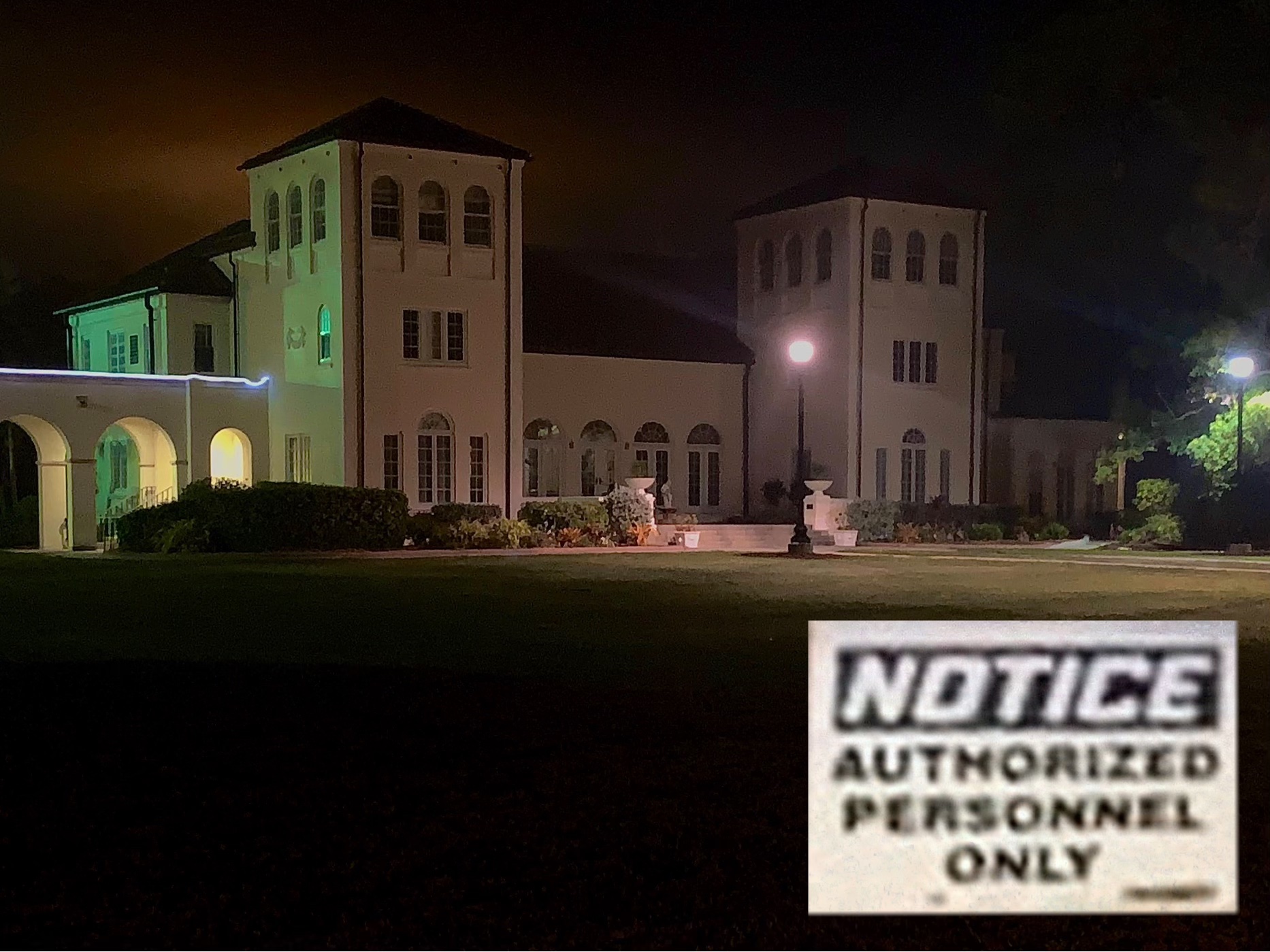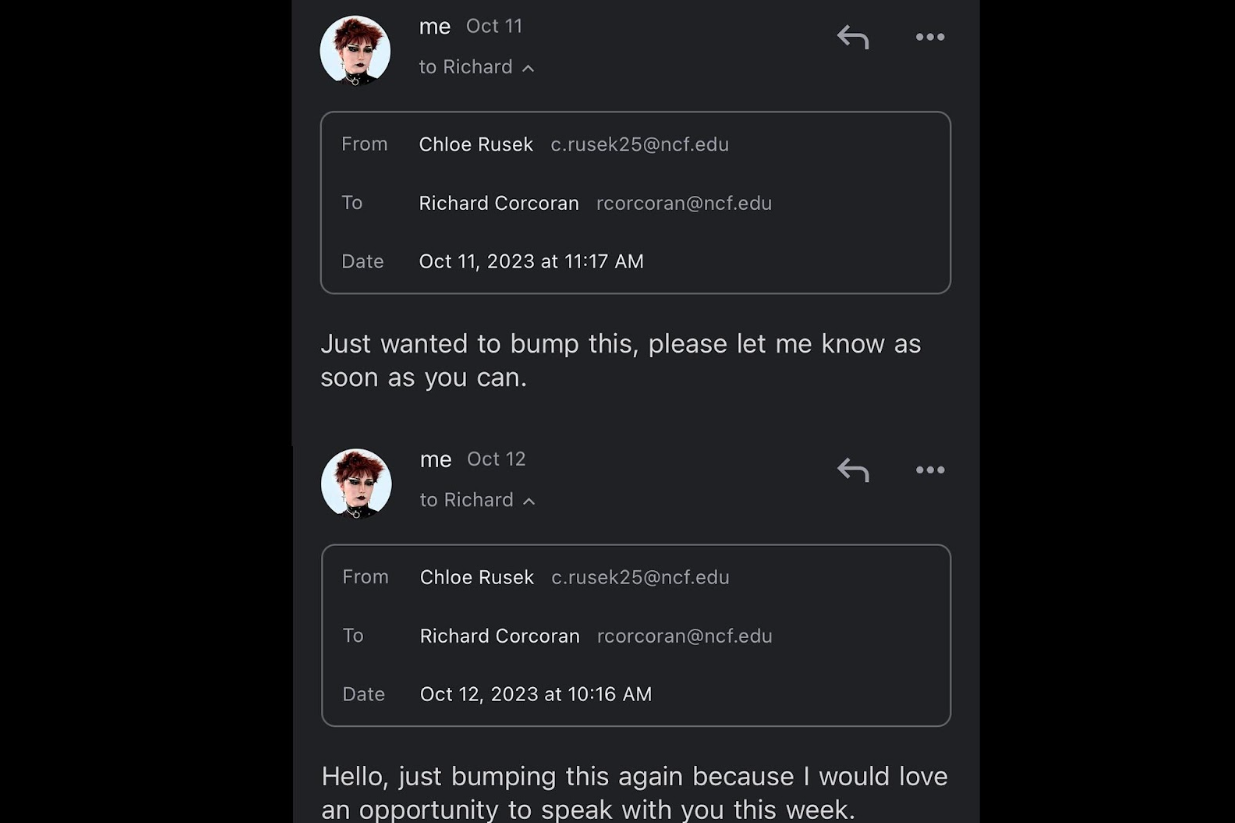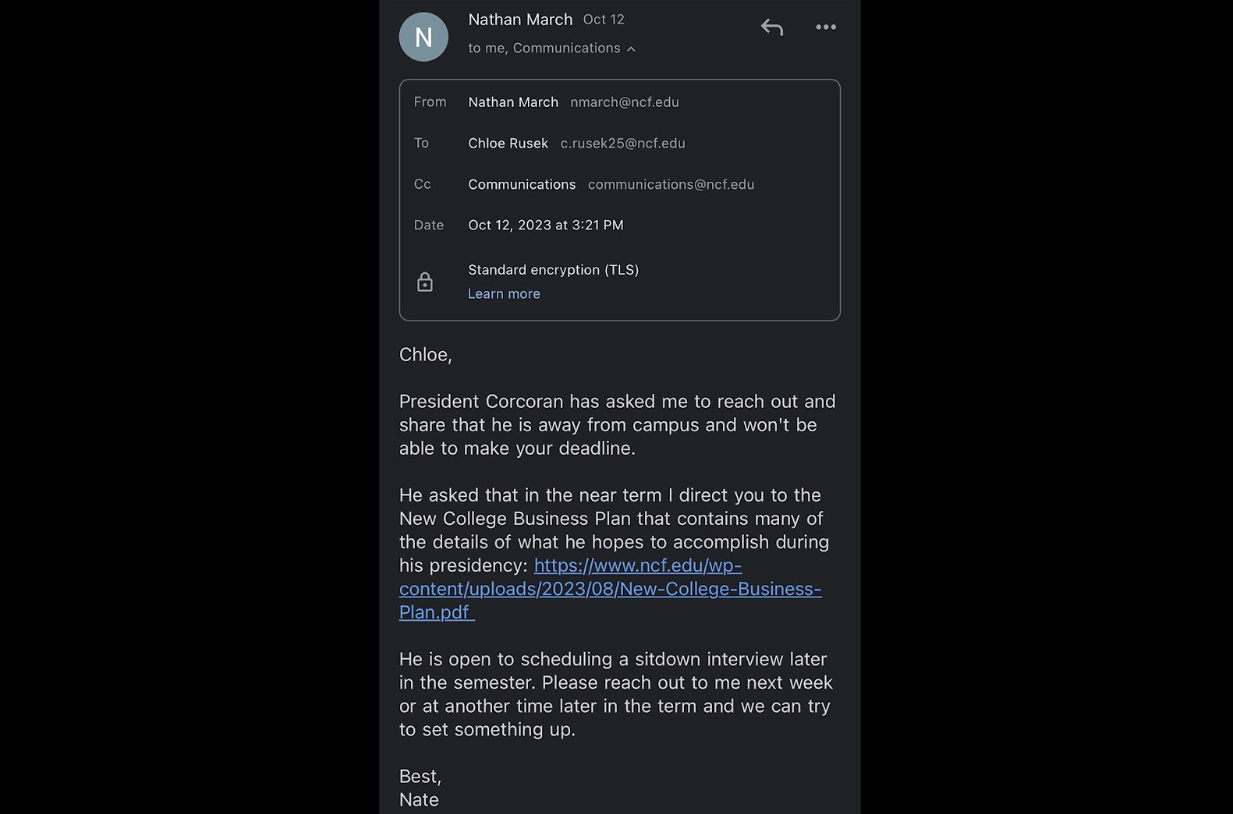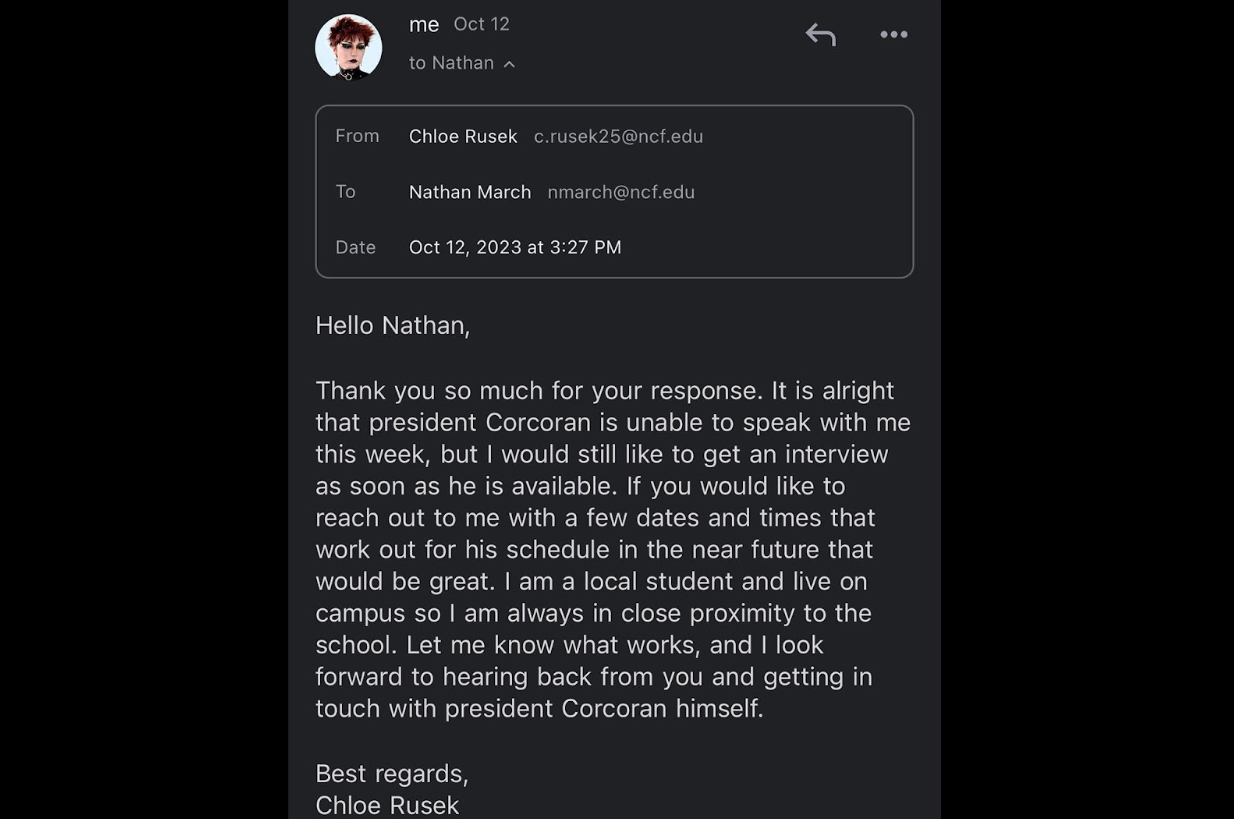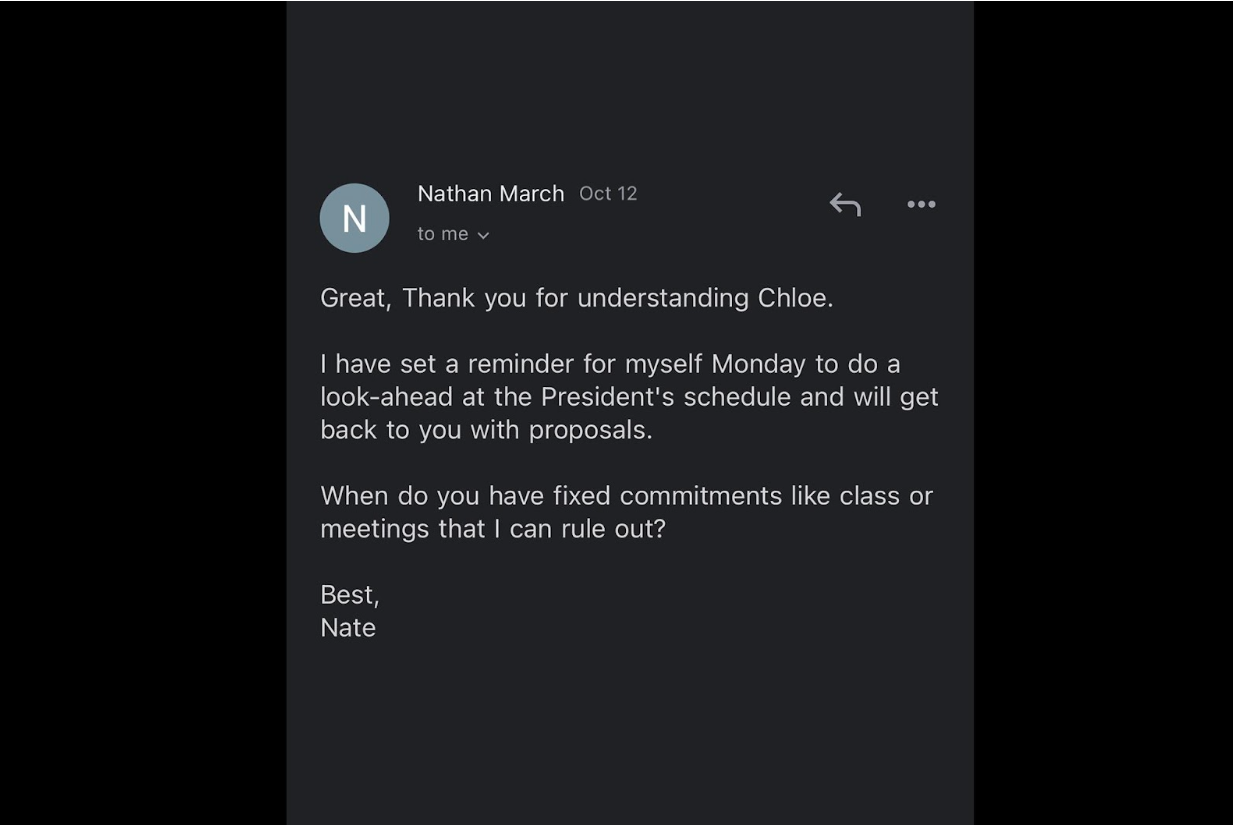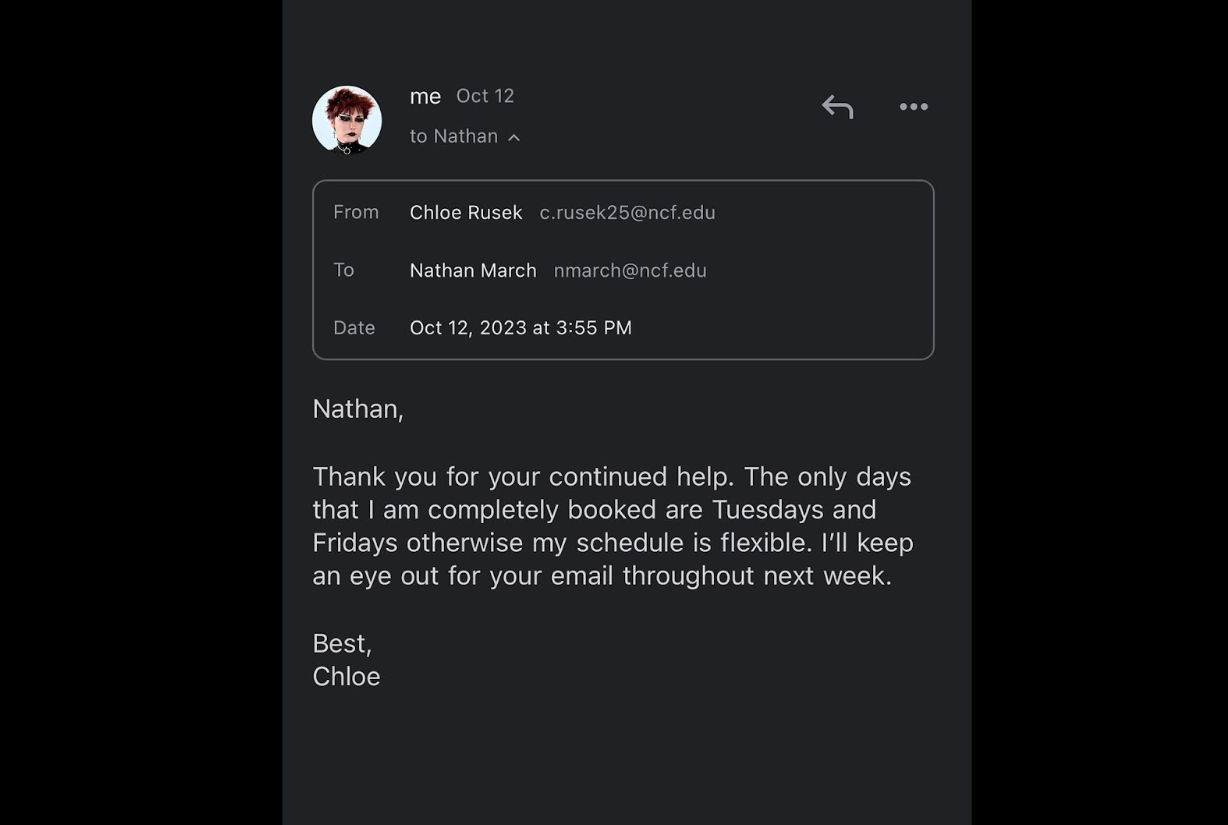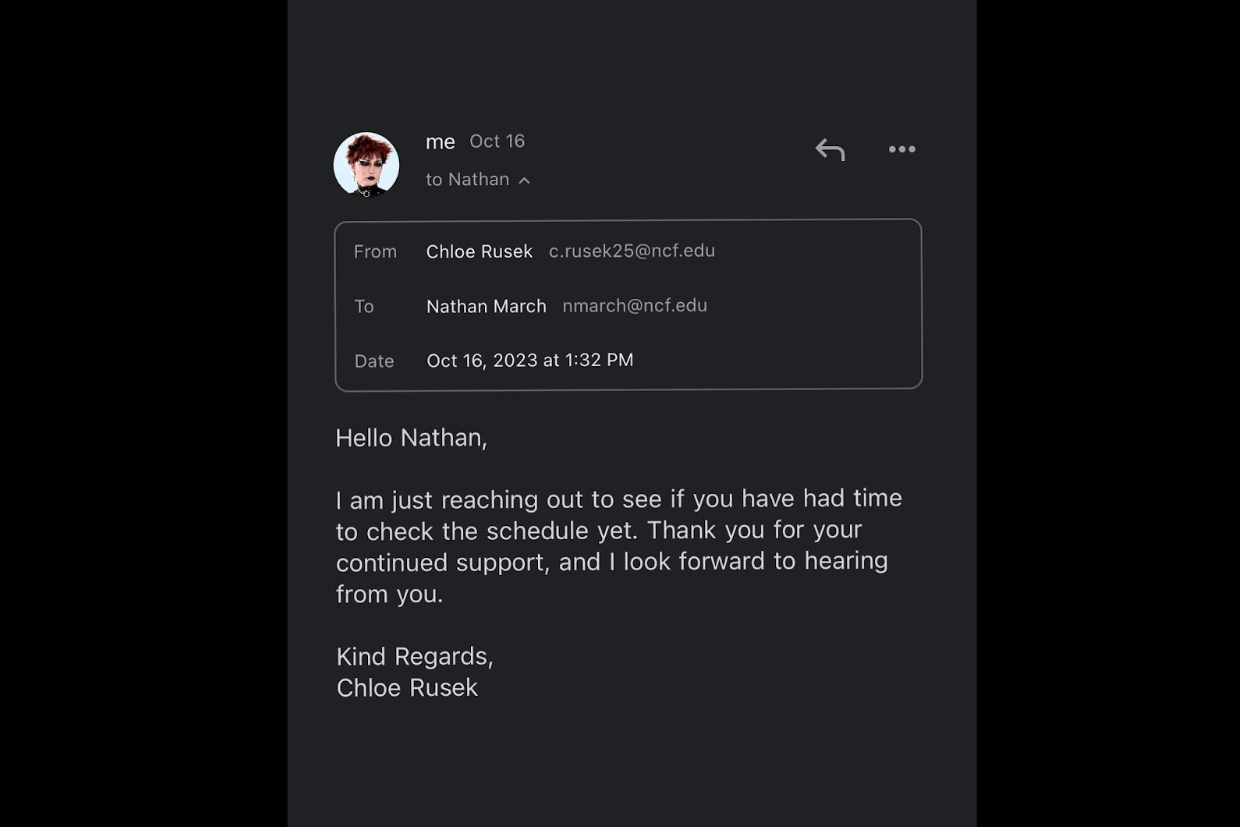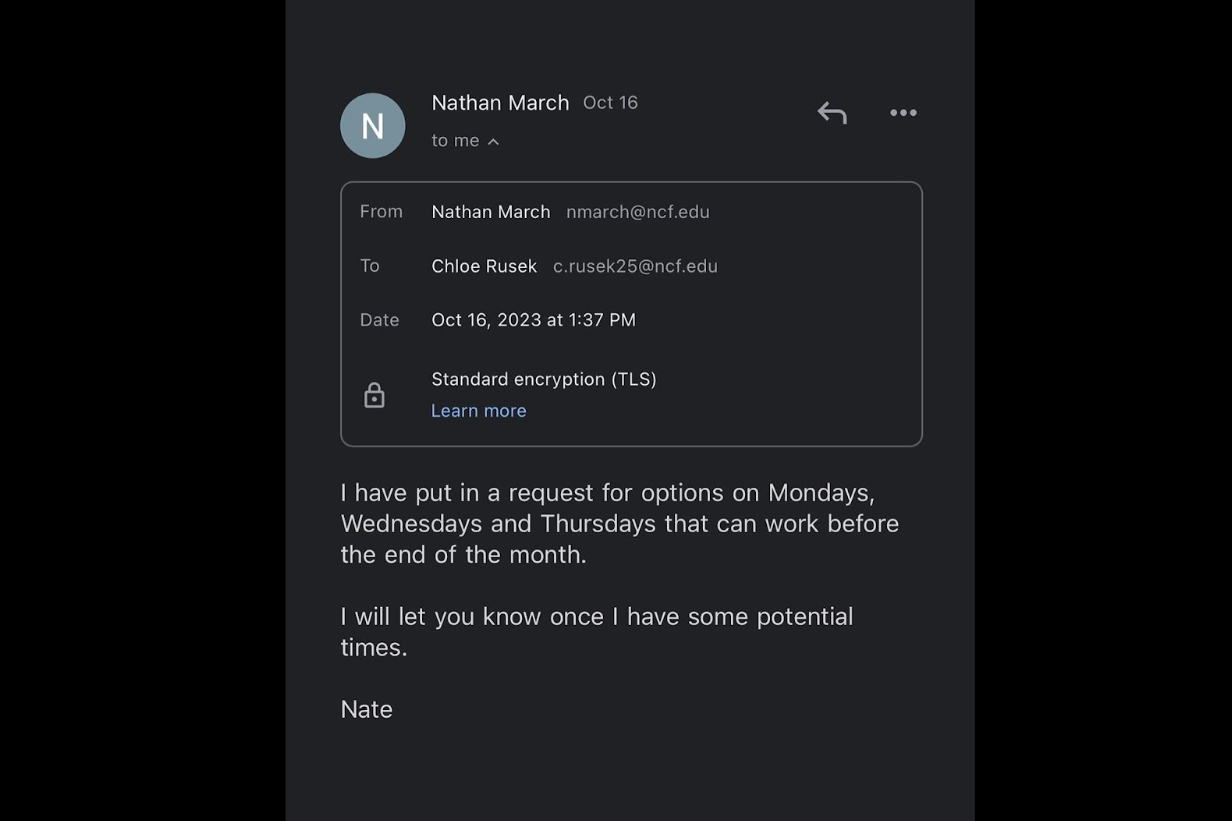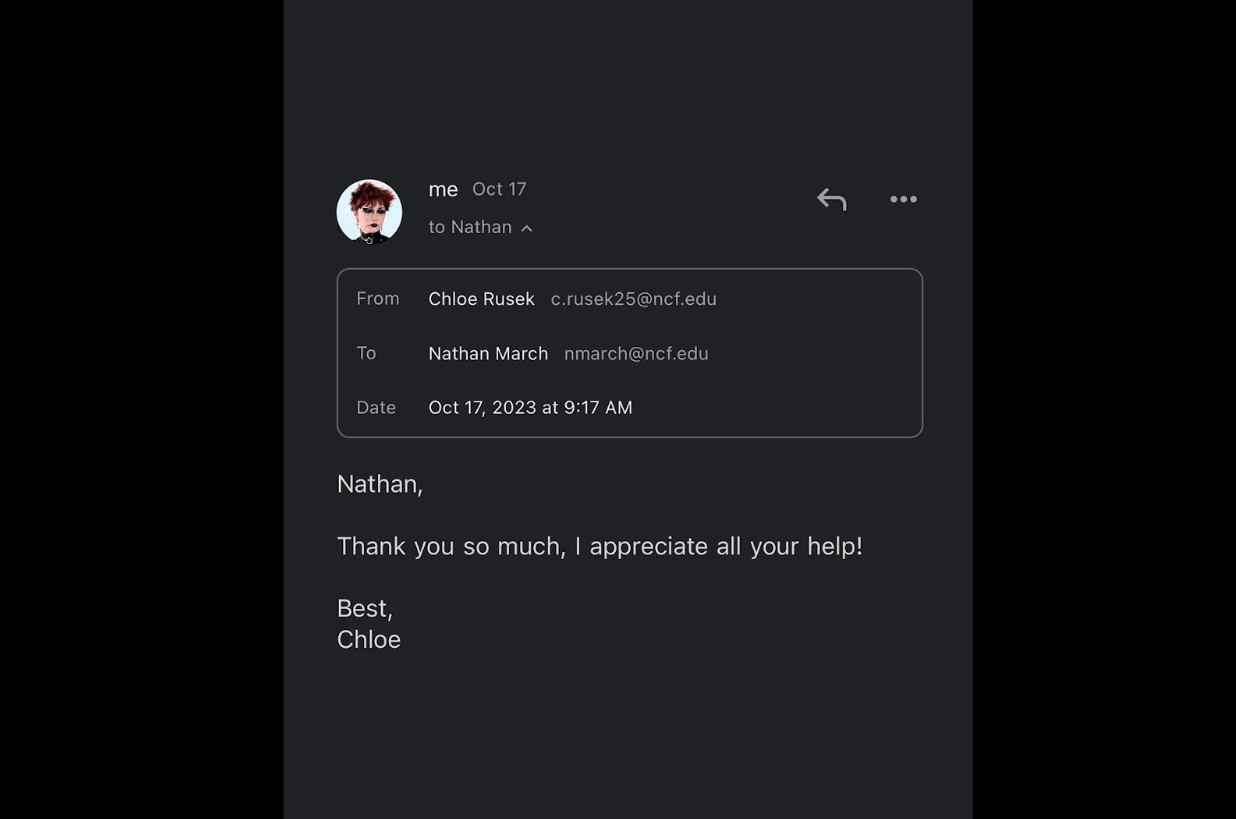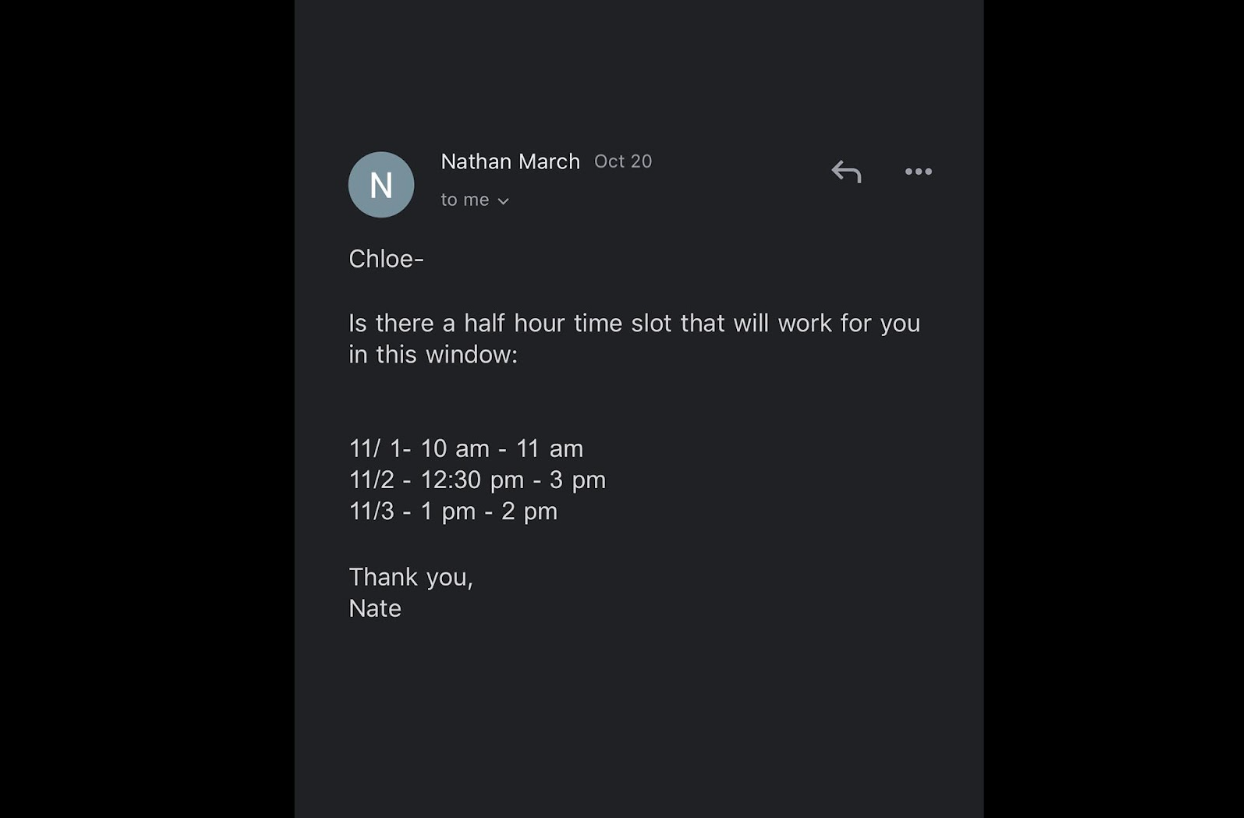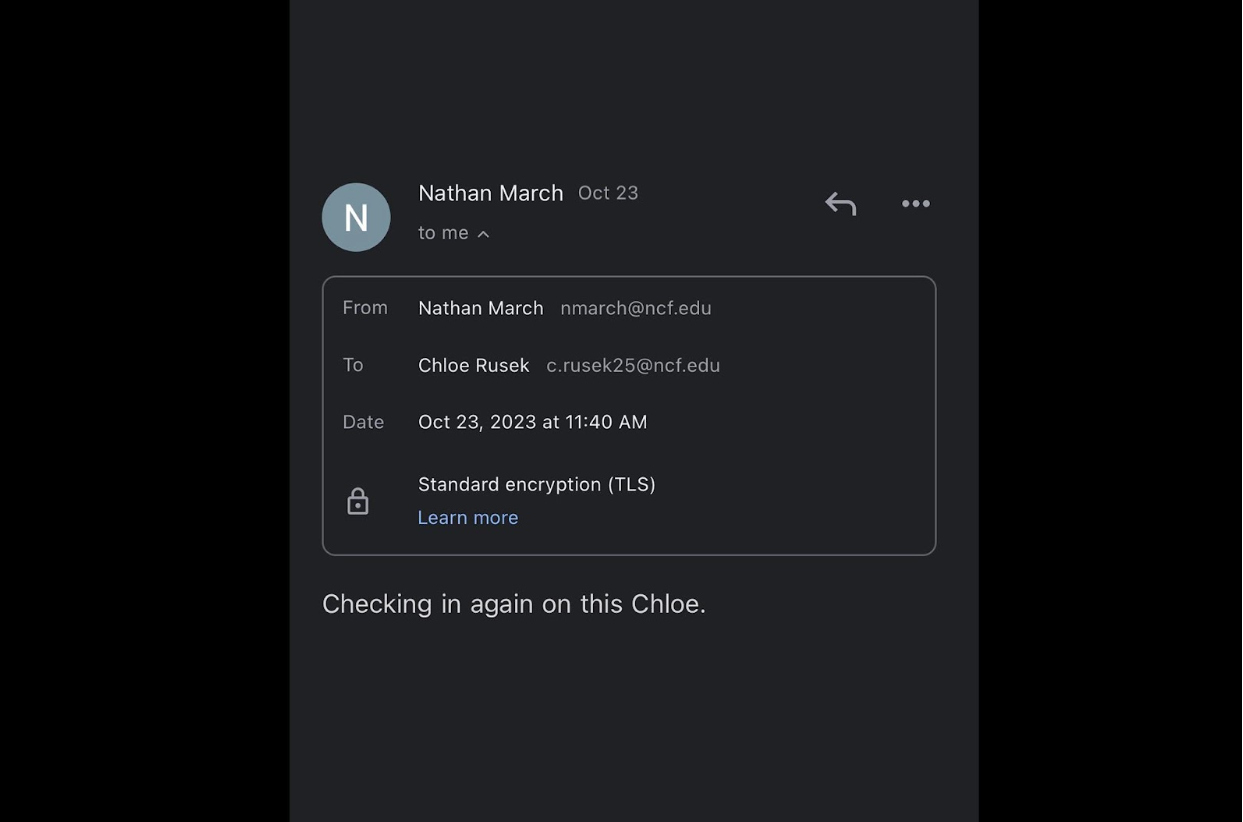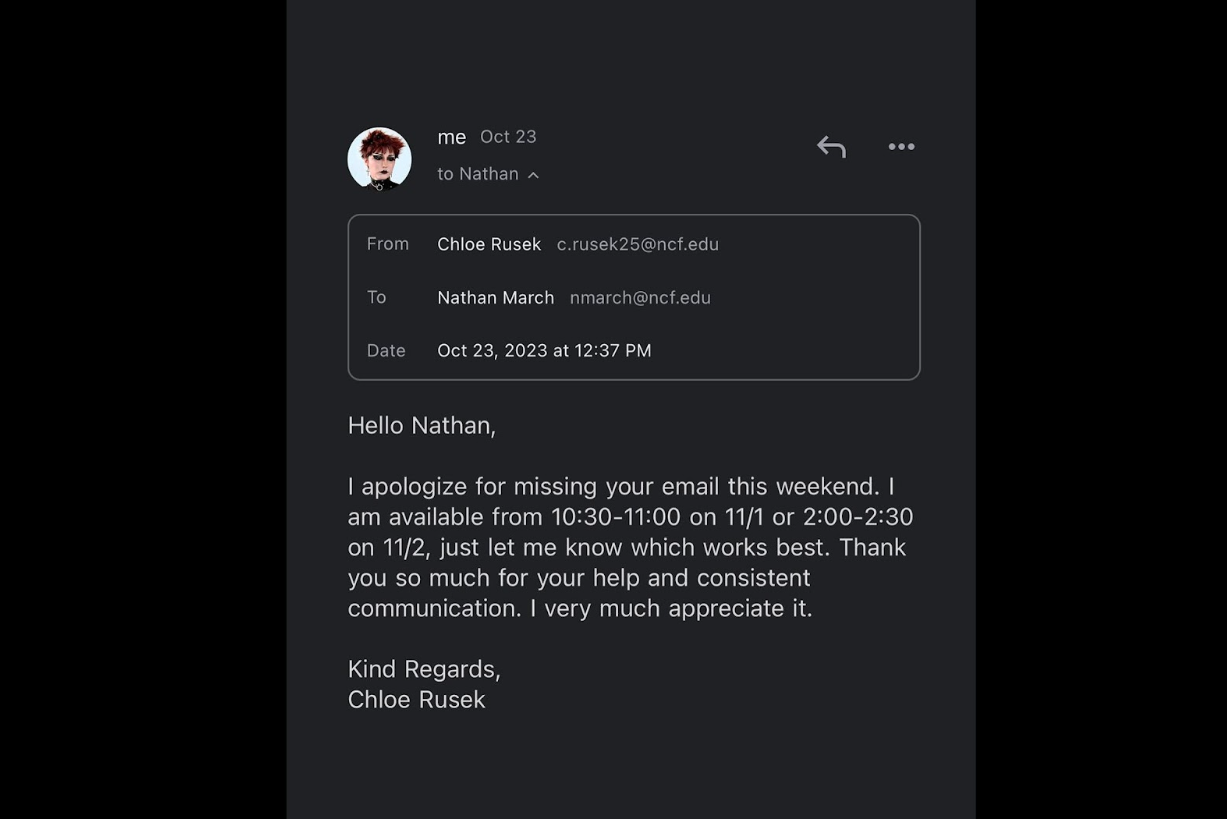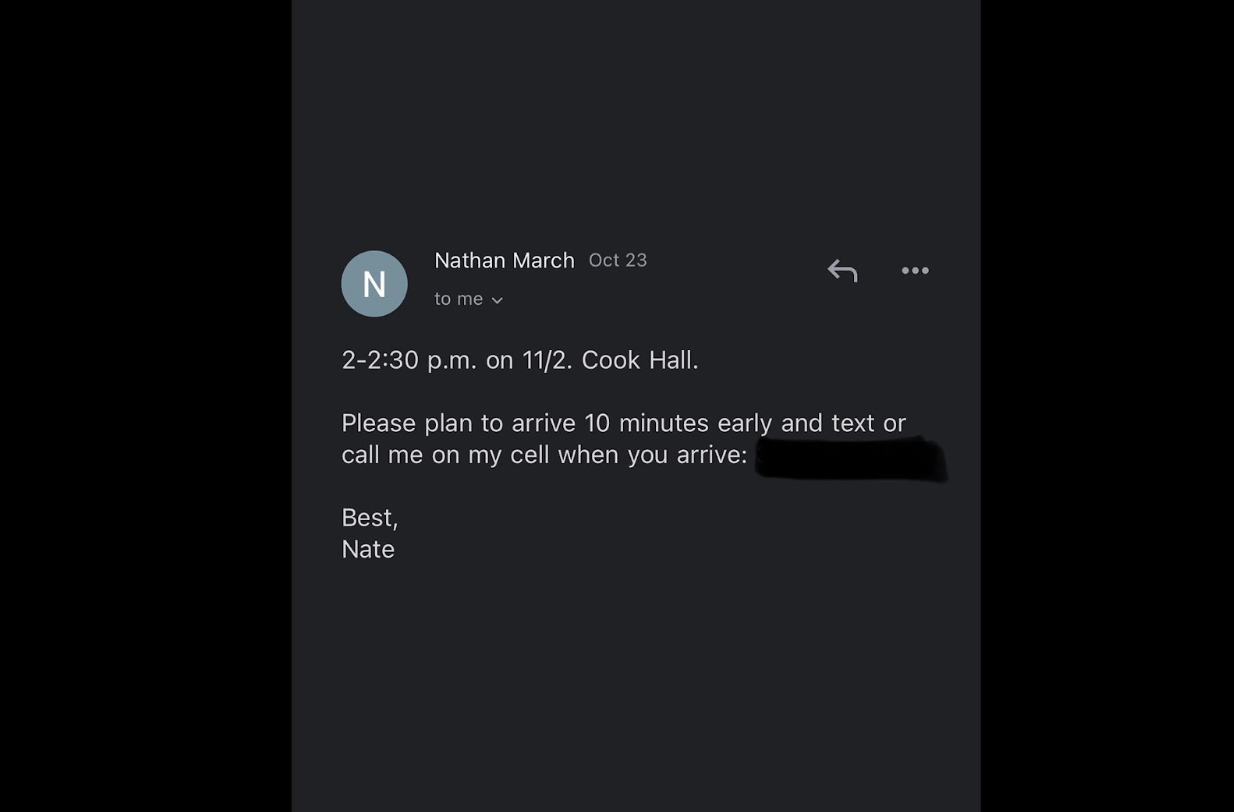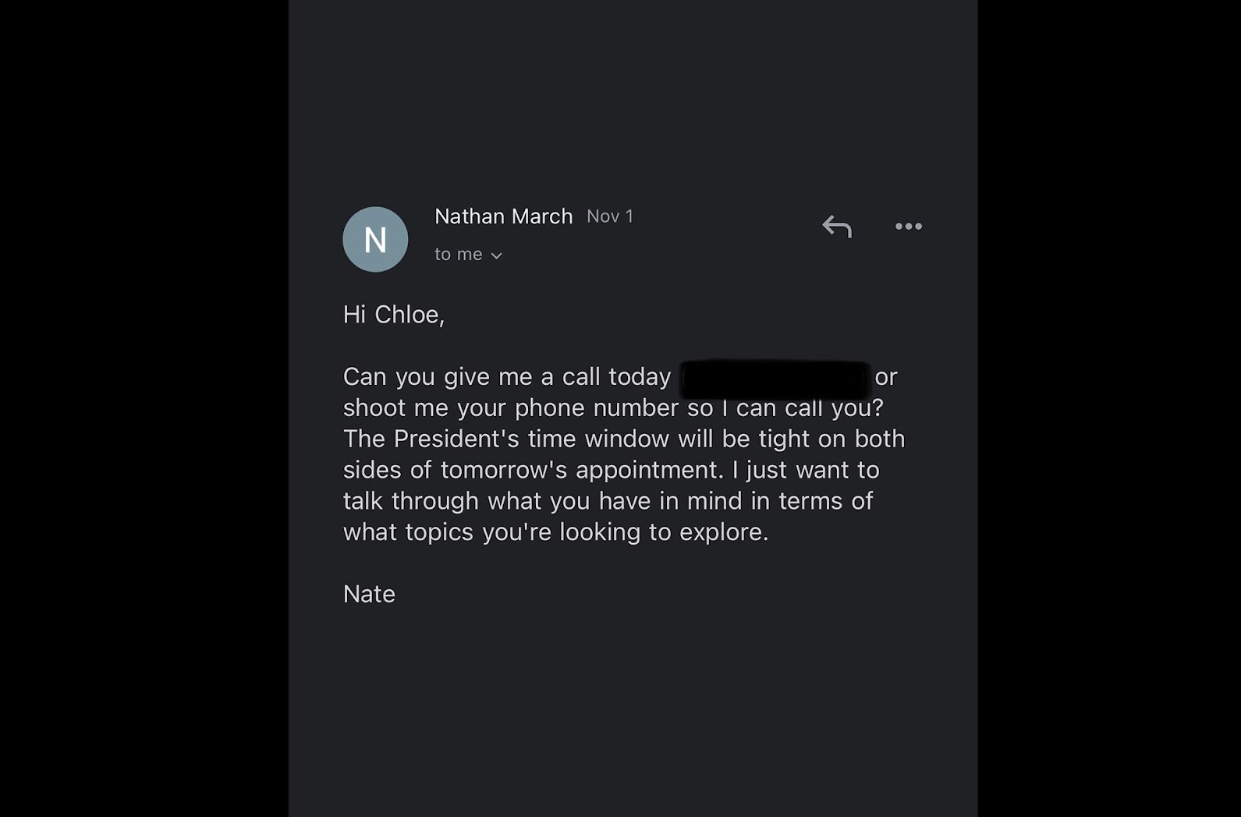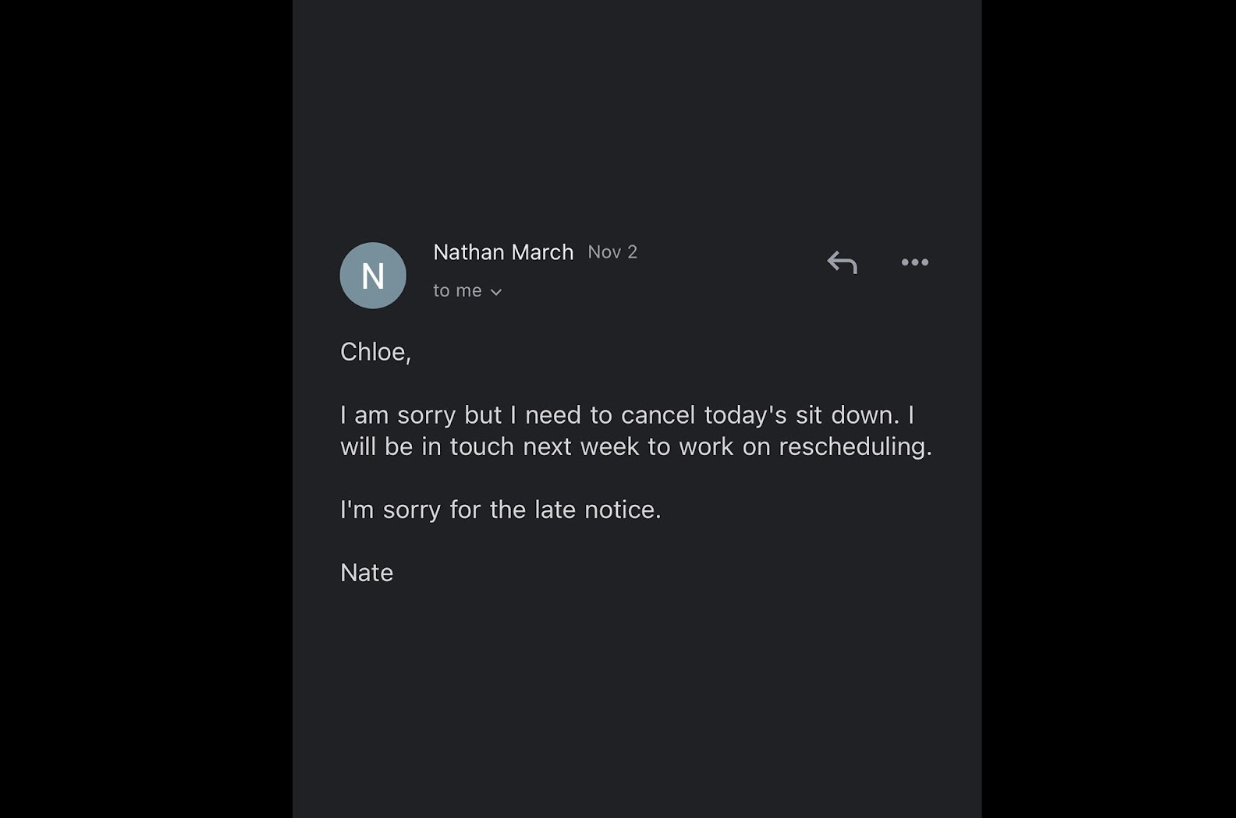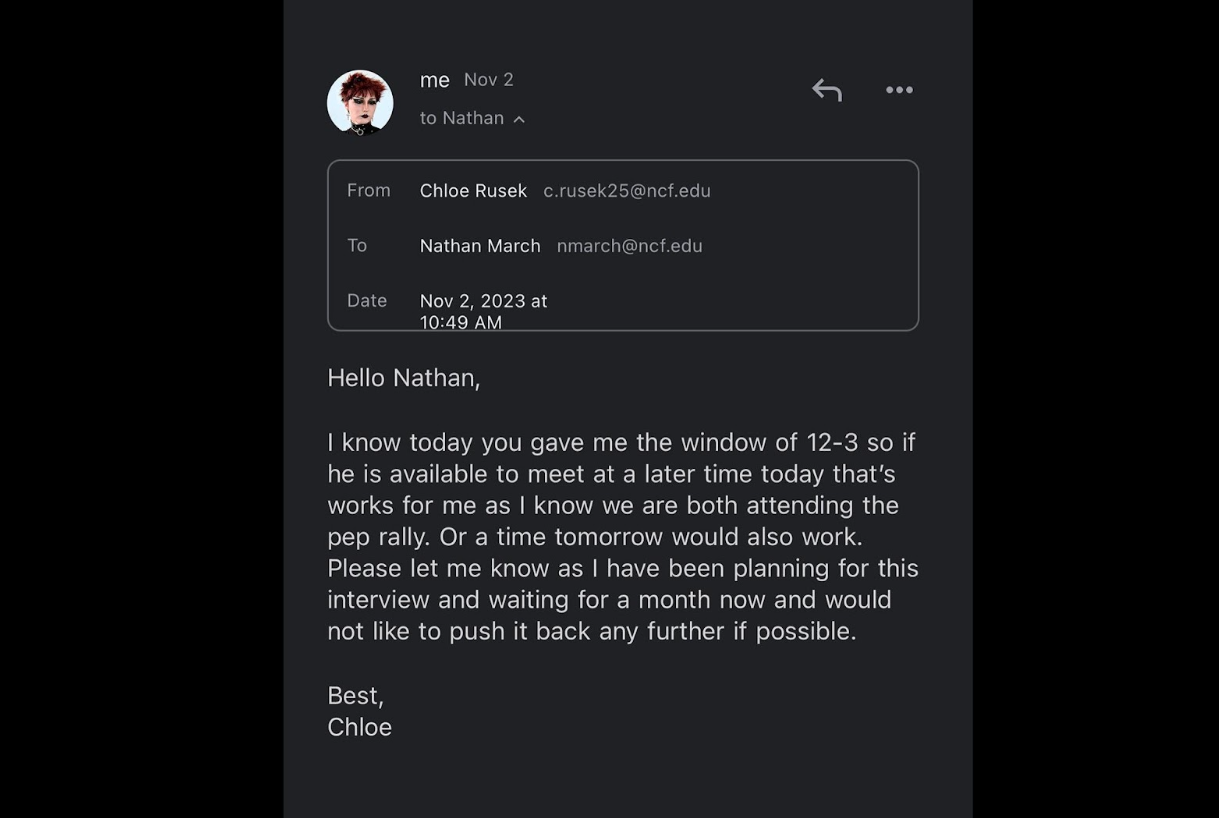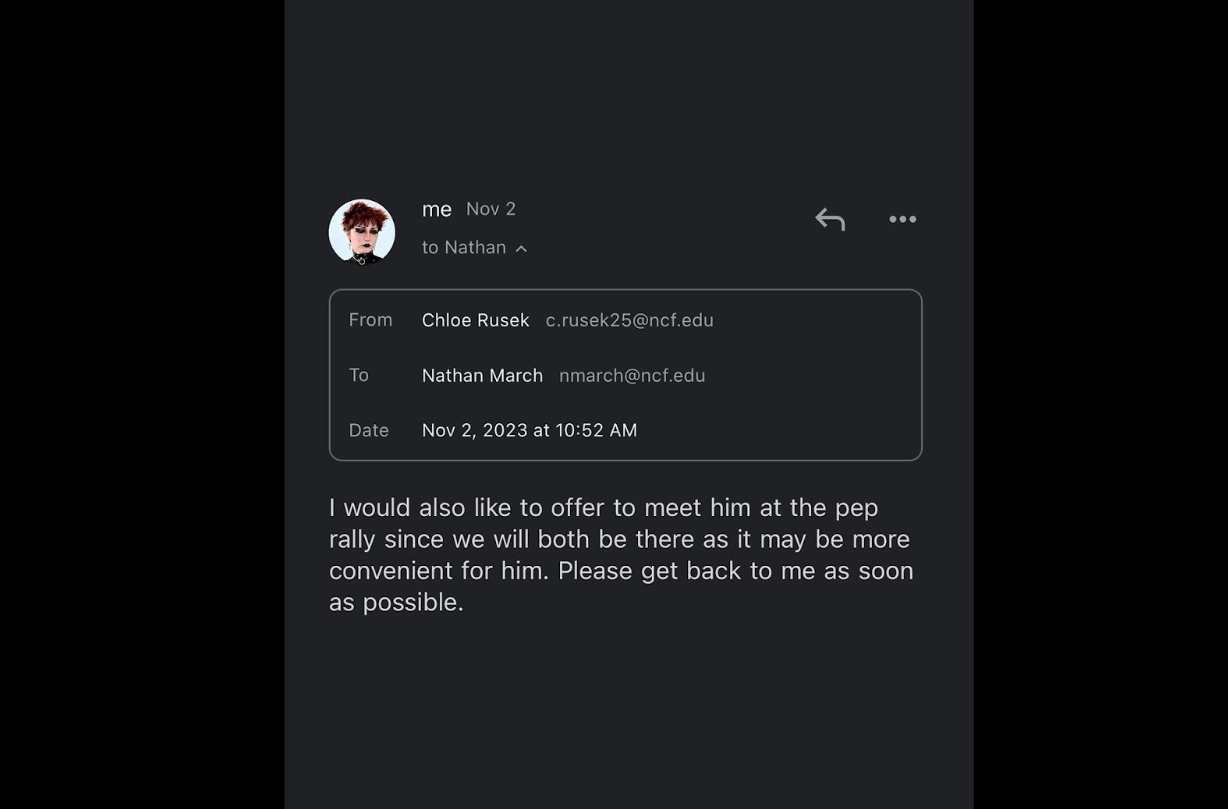The Catalyst is New College’s student-run newspaper, a project of the Newspaper Writing and Production/College Newspaper Editing course and tutorial sequence taught by Professor of Anthropology Maria Vesperi since 1994. Historically, staff and students have excitedly embraced the Catalyst, but this fall has proven to be the most difficult semester for student journalists to date. I am a thesis student and a Catalyst staff writer with three semesters’ experience. What follows is a first-hand account of my attempts to reach President Richard Corcoran for an interview.
On Oct. 3, the New College Board of Trustees (BOT) selected Corcoran as President of New College. One week later, on Oct. 10, I reached out to Corcoran for an interview, hoping to reintroduce the former Interim President to the student body in his new role. I inquired about Corcoran’s plans for the school moving forward.
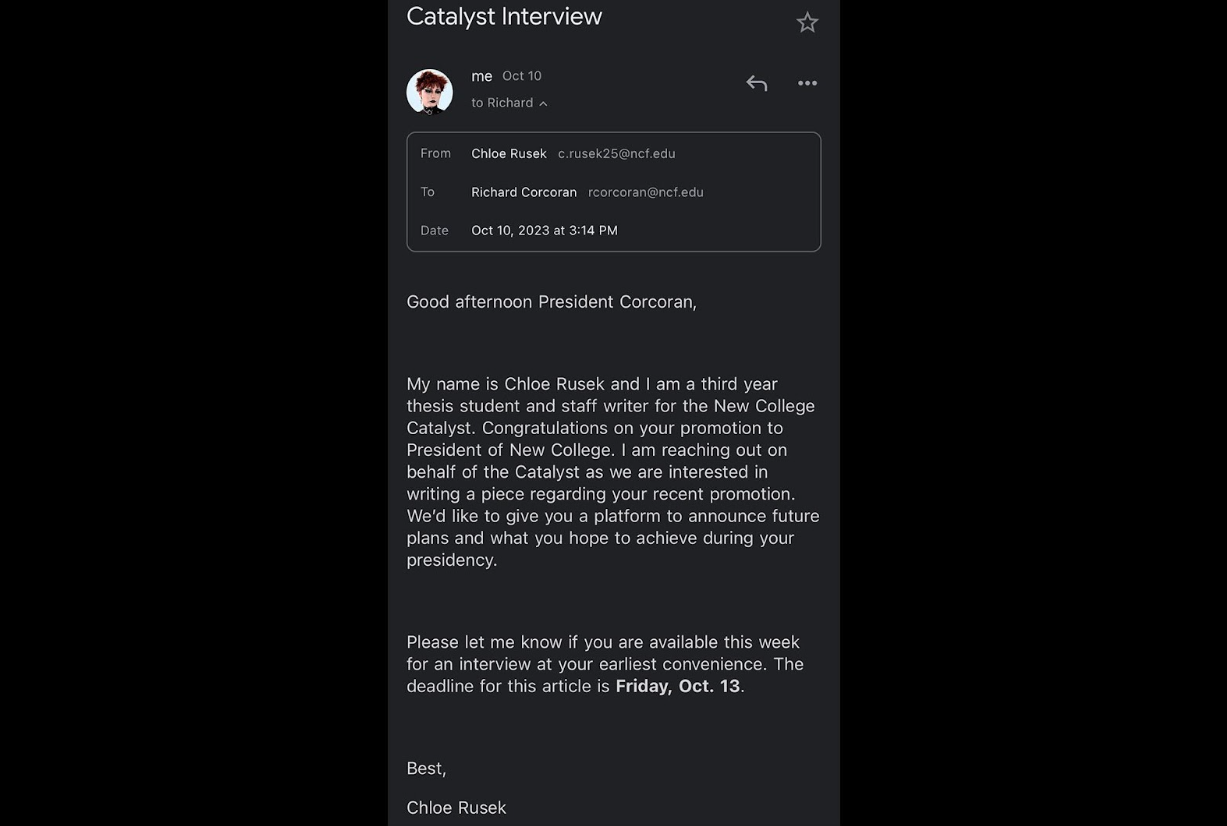
After receiving no response, I decided to follow up on the email the following day and again on Oct. 12. There was still no reply from Corcoran. Instead, Director of Communications and Athletics Public Information Officer Nathan March reached out over email.
I responded within the day and as the weekend was approaching, March offered to work with me the following Monday, Oct. 16, on scheduling an interview.
On Oct. 16, I reached out to March again to check in on the status of the interview. March inquired about my availability, and then he confirmed that he had submitted time slot requests for Mondays, Wednesdays and Thursdays before the end of the month of November.
March reached out again on Oct. 20, offering half-hour time slots when Corcoran would be available for an interview. I responded with two possible slots, later confirming the interview for Nov. 2 at 2:00 p.m. March instructed me to show up 10 minutes early on the day of the interview.
After the email exchange on Oct. 23, March did not reach out to me again until Nov. 1, one day prior to the set interview date. March asked me to share the “topics” I was aiming to explore. I did not reply to this because in the initial email to Corcoran I had outlined the ideas that I wanted to inquire about, and I was hoping for an open, get-to-know-you discussion.
On the date of our scheduled interview, Corcoran made one of his first public addresses directly to the student body at a New College Pep Rally. That same morning, March informed me that the interview had to be canceled, with no concrete reason given. I responded with multiple options for alternate meeting times and dates, but received no response. So I went to Cook Hall that afternoon to speak with March in person about rescheduling.
Dressed in business casual attire and equipped with a notebook, I made my way to March’s office on the second floor of Cook Hall.
He welcomed me in and we discussed the options for rescheduling. When I asked why the original meeting had been canceled, March still had no definitive answer. He was helpful and provided me with his phone number again in order to keep in touch about the interview, explaining that he did not have direct access to the President’s calendar. I asked if Corcoran’s secretary was available to speak, and March stated she was off campus that day.
As I was on the way out, I noticed two women talking outside the President’s office. I approached them, introducing myself to the woman behind the desk. She replied that she was aware of who I was. The woman sitting behind the desk had long dark hair. I cannot recall her name, but she was speaking to Director of Events Naomi Copeland.
I inquired about the cancellation of the interview and asked if the woman behind the desk could give a reason. She explained that Corcoran was a president of a college with a very busy schedule. I followed this up by asking if she could give examples of what Corcoran was doing during work hours, as most of his time seemed to be spent off campus. I asked about fundraising and if, for example, these off-campus trips had anything to do with school funding. The woman responded that the President’s schedule was private and that she was not capable of sharing that information with the Catalyst.
Copeland interjected during the conversation and told me that it was “not fair” of me to be asking these questions. She left to get the Director of Communications. She returned with March and the three of them discussed the issues.
Rusek explained she thought speaking to someone who has direct access to Corcoran’s calendar and works closely with him may be an easier route to the interview, but the woman behind the desk again insisted that I needed to work this out with March.
I told them that I was trying to complete homework as a student journalist. As the conversation continued, Copeland expressed that the school “treats all outside media the same.” I asked how this applied to the Catalyst, as it was the college’s paper, but the only person who said he knew about the paper was March. He quickly corrected Copeland and informed her that the Catalyst was a part of New College. They insisted that they would treat the Catalyst as if it was outside media, even if it was the school paper. I said my goodbyes and exited the building.
After this encounter, I left with more questions than I had when I arrived.
On Nov. 10, Corcoran appeared on Fox Broadcasting’s The Big Money Show. This program focuses on reporting and analyzing financial news. In a post made to X, Corcoran states he was grateful to be able “to talk about how @NewCollegeofFL is a hub for free speech and civil discourse – a shining light in the middle of a higher ed landscape dominated by cancel culture.”
The next message I sent March was a text. It went out Nov. 14, with no response. A second message was sent on Nov. 16 and March did respond, apologizing for missing the initial message. No response was received over text message from March after Nov. 16, although I continued to reach out.
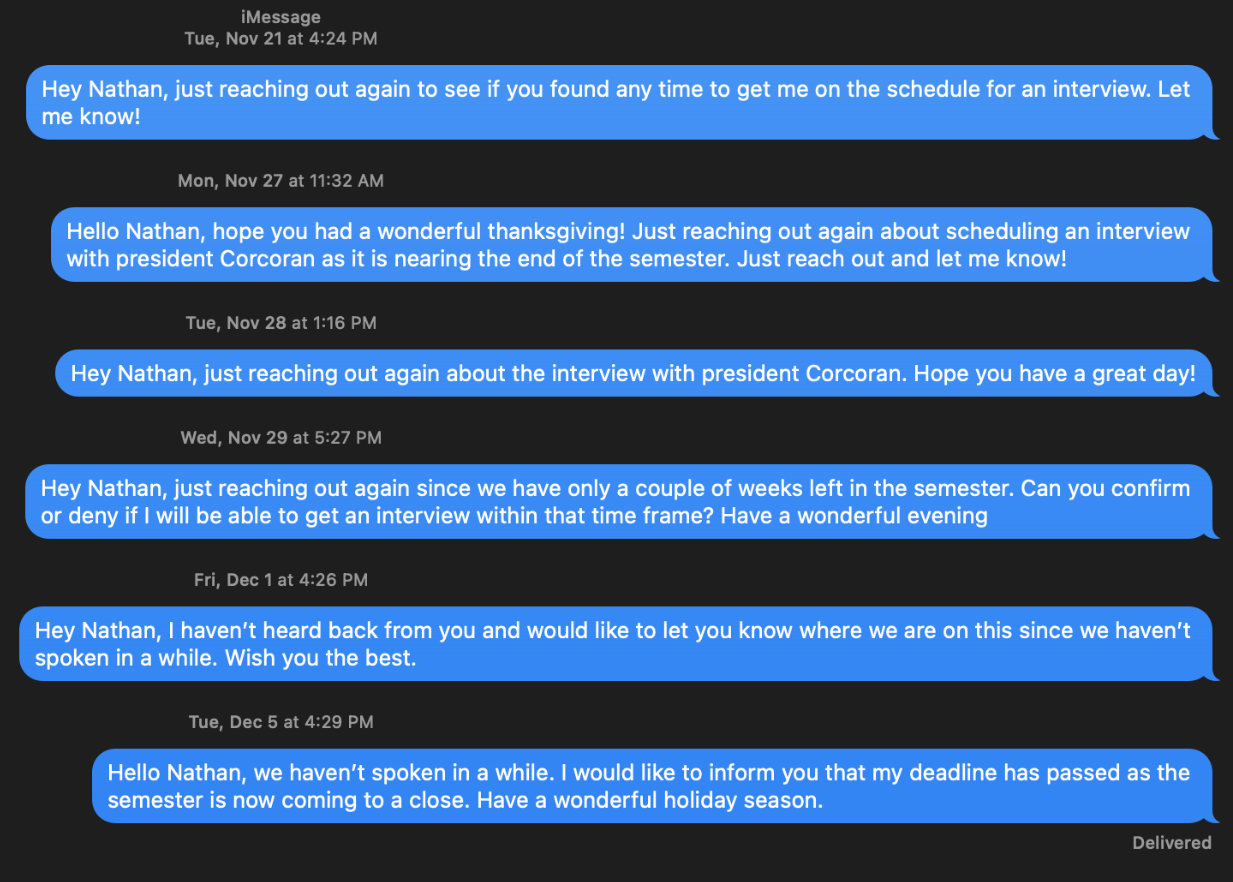
On Nov. 27, Corcoran had a sit down interview with Spectrum Bay News 9 at the New College bayfront to discuss where the school is currently headed now that he is President.
Tuesday Dec. 12 was a cold day for Florida. I was visiting Cook Hall to take a photo of the building for this article. The world works in funny ways and as I was entering the building I realized the person in front of me was Corcoran. He was cordial and held the door for me and we ended up having a brief but pleasant conversation.
The frustrating thing is that Corcoran was polite and easy to talk to in person. He seemed interested in my studies at New College, and asked my opinion of the classes I have taken. At the end of our interaction I introduced myself and although he didn’t recognize my name at the time, he said he would keep it in mind as he left for another television interview. This leaves me wondering why the Catalyst has had such difficulty getting in contact with him.
This is just one example of the struggles to work and learn as a student journalist on the New College campus at this time. It was not always so difficult, however. The Catalyst contacted Community Outreach Consultant at PEN America and former Catalyst Editor in Chief Sophia Brown (’23) about her past experiences with interviewing for the newspaper. Brown was editor for three semesters, and she said that when the Catalyst reached out to administration the appropriate person could be contacted readily.
“Under former President Okker’s leadership, it was always a very easy and straightforward process to get interviews with and receive information from administrators,” Brown recalled. “I, myself, got to interview Okker maybe five or six times when I was Editor in Chief.”
Brown continued, describing Okker’s attitude towards students and student journalists in the past and the effect it had on students in an environment like New College.
“She was always very open to speaking with students. At such a small college, that kind of transparency makes a huge difference. Students feel seen and respected, and they feel like they can collaborate with the administration when it comes to shaping and improving the school,” Brown said. “So what kind of message does it send when the administration avoids being open and honest with students? And especially student journalists, who are just trying to do their duty to their school? It makes them feel disrespected and small.”
In contrast to Brown’s experience, current Editor in Chief and thesis student Isaac Tellechea elaborated on how staff and student attitudes have shifted within the past year. He has written for the Catalyst for six semesters in total.
“In my time writing for the Catalyst, I found figures like the President to be very accessible and approachable, and that seems to have changed. I myself interviewed Okker one-on-one and had a very nice conversation with her,” Tellechea said.
He continued, describing how Catalyst reporters have increasingly been having issues getting into contact with New College staff. Not only does this affect the news cycle itself, often slowing it down, he explained, but it also discourages young journalists who write for the paper.
“This semester, when reaching out to certain administrators, receiving a response from Communications and Marketing was much more common than having direct contact with the person. It was something we never really had to deal with before and put a damper on a lot of our writers’ experiences when they’re trying to work on interviewing skills in this class,” Tellechea said.
Without support from the school, writers will feel discouraged and miss out on a lot of opportunities to learn information about topics they might not normally explore. This plays an important role in preparing journalists for the real world by broadening their horizons past that of their own lives. Tellechea talked about the importance of learning interviewing skills and how the attitude of staff towards the school paper and student writers plays an important part in their growth as journalists on campus.
“I think that this behavior from the administrators in how they treat the Catalyst and the writers strongly affected morale because it limited our staff writers’ ability to learn real-world journalism skills. I feel that it discouraged us from taking on stories that we would’ve been able to write in previous years but now can’t because we can’t get honest, one-on-one interviews with certain figures at the school like we used to.”
As New College administrators funnel in and out of the school in this transitional period, it is apparent that the approach toward student media on campus has shifted drastically. And as New College has been thrust into the national spotlight during this past year, it has become increasingly difficult not just being a journalist, but being on campus in general. With a constant bombardment of outside media on campus and high tensions around speaking to these sources, Catalyst writers are having an increasingly difficult time completing their schoolwork. Not supporting young journalists in their efforts to learn and practice their craft is detrimental not only to their education, but to the college journalism experience as a whole.

